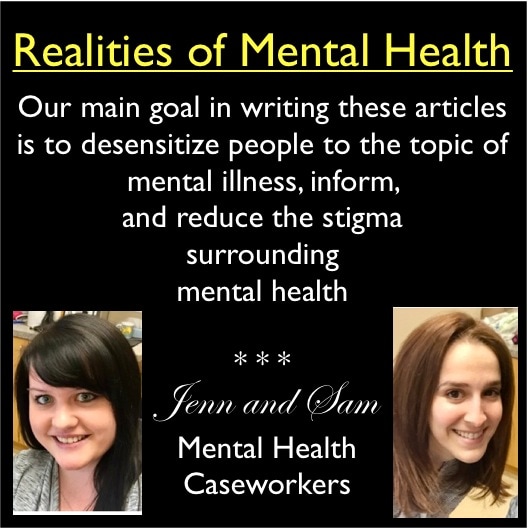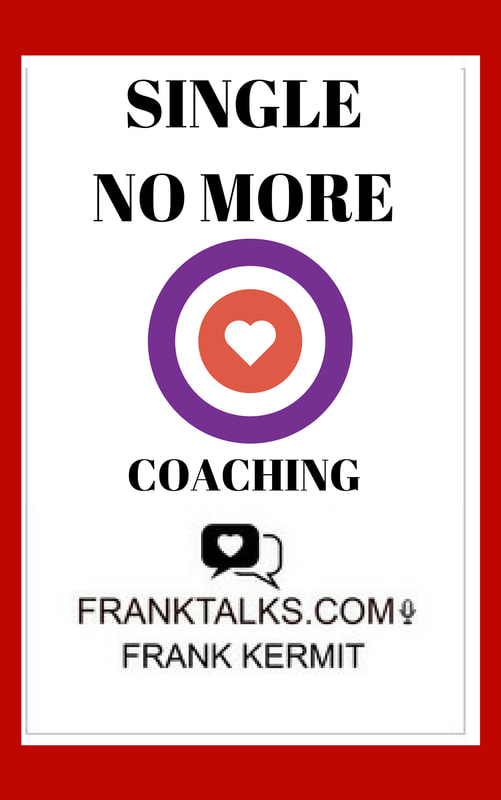|
Realities of Mental Health by Jenn and Sam, Mental Health Caseworkers Let’s talk about mental health. What really is mental health and who is it affecting? The reality is that it affects everyone. It is the thoughts, feelings, behaviors and emotions that we feel every day. Some days are better than others, and this is true regardless of whether you suffer from a diagnosed mental illness or not. Sometimes, however, the low days become low months or you can’t get the thoughts out of your head. In some instances, your behavior becomes wildly different from how you normally are. Thought patterns or behaviors begin to disrupt your daily activities and functioning. This is when mental health becomes problematic. Most of society believes that they will never be affected by mental health problems. However, approximately 20% of Canadians experience some form of mental illness in their lifetime. This means that 1 in 5 people living in Canada are facing mental health struggles. With the wide reach of social media and social networks alone, you are guaranteed to know someone who is having a difficult time maintaining their mental health. This statistic doesn’t even include those who have a mental illness and do not seek help or agree to participate in statistical surveys. Most mental health disorders emerge in late adolescence to early adulthood. Some will develop later on, at age 40-50 years. We are seeing a trend in recent years, however, of people being diagnosed earlier than average, and we’ve even seen major disorders being diagnosed in children. This sounds scary, but the most important thing to remember is that the earlier a person is diagnosed and treated, the better their outcome. Recognizing the symptoms and seeking treatment early on creates a better prognosis, and a better chance of recovery. Obvious, right? But the reality is that most people have no clue what the signs of a mental health problem are, or are unwilling to seek treatment because of the stigma surrounding mental illness. Our main goal in writing these articles is to desensitize people to the topic of mental illness, inform, and reduce the stigma surrounding mental health. We want people to be able to open a line of communication to those suffering from mental illness; to seek help, talk to someone, and get on the road to recovery. Your mental health, although a part of you, does not define you. Within that same discussion, we hope to provide support and guidance to family members, friends and loved ones of those facing mental health struggles. One of the greatest factors in recovery is having a solid support system, which is why we encourage family and friends to educate themselves with accurate information concerning mental illness, so that they may understand what their loved one is experiencing and support them in seeking the appropriate help. -Jenn and Sam Author Bios Let us introduce ourselves. We are mental health case workers, and although that sounds like a big scary title, it is actually just clinical terms for saying that we help people help themselves. Our job is to empower people with the knowledge and tools to help manage any mental health issues they may be facing. This can range from small bouts of depression and anxiety, to suicidal ideation and chronic illnesses such as Schizophrenia and Bipolar disorder. Whatever the concern, we are here to provide support, guidance and direction in riding the wave to recovery. On a daily basis you can find us meeting with clients and creating Action Plans to accomplish short and long terms goals. We help locate and direct clients and families to community services and organizations. We create and facilitate sport therapy groups, workshops, educational seminars and group activities, all with goal of normalizing mental health issues and empowering clients with the tools and skills to move forward not only in their recovery, but with their life goals. If you are lucky enough, you can even spend time with our onsite therapy pup named Norbert, who is always available and more than willing to give some love and cuddles. Norbert plays his own role as a worker, going out into the community to spread awareness and help with prevention. Our approach is far from traditional and we strive to work outside the clinical “box”. We focus on the individual’s strengths, using their passions and goals to facilitate stability and recovery. Jenn and Sam Mental Health Caseworkers
0 Comments
Leave a Reply. |
Categories
All
Archives
June 2024
NDG Encore Singing Chorus **** Every Friday Night Dr. Laurie Betito Quotes
|
|
FRANK KERMIT MA
EXPERT RELATIONSHIP COACH HELPING PEOPLE CONNECT |
ALL COACHING IS BY TELEPHONE OR SKYPE ONLY INTERNATIONAL CLIENTS ARE WELCOME *INTERNATIONAL CLIENTS ARE RESPONSIBLE FOR LONG DISTANCE PHONE CHARGES, +1 Canada/USA* SKYPE IS PREFERRED. IT'S FREE AND EASY TO USE FROM ANYWHERE IN THE WORLD TELEPHONE: +1-514-680-3278 EMAIL: [email protected] SKYPE: frank kermit PLEASE NOTE THAT ALL SALES ARE FINAL. NO REFUNDS OR EXCHANGES
|




 RSS Feed
RSS Feed












































